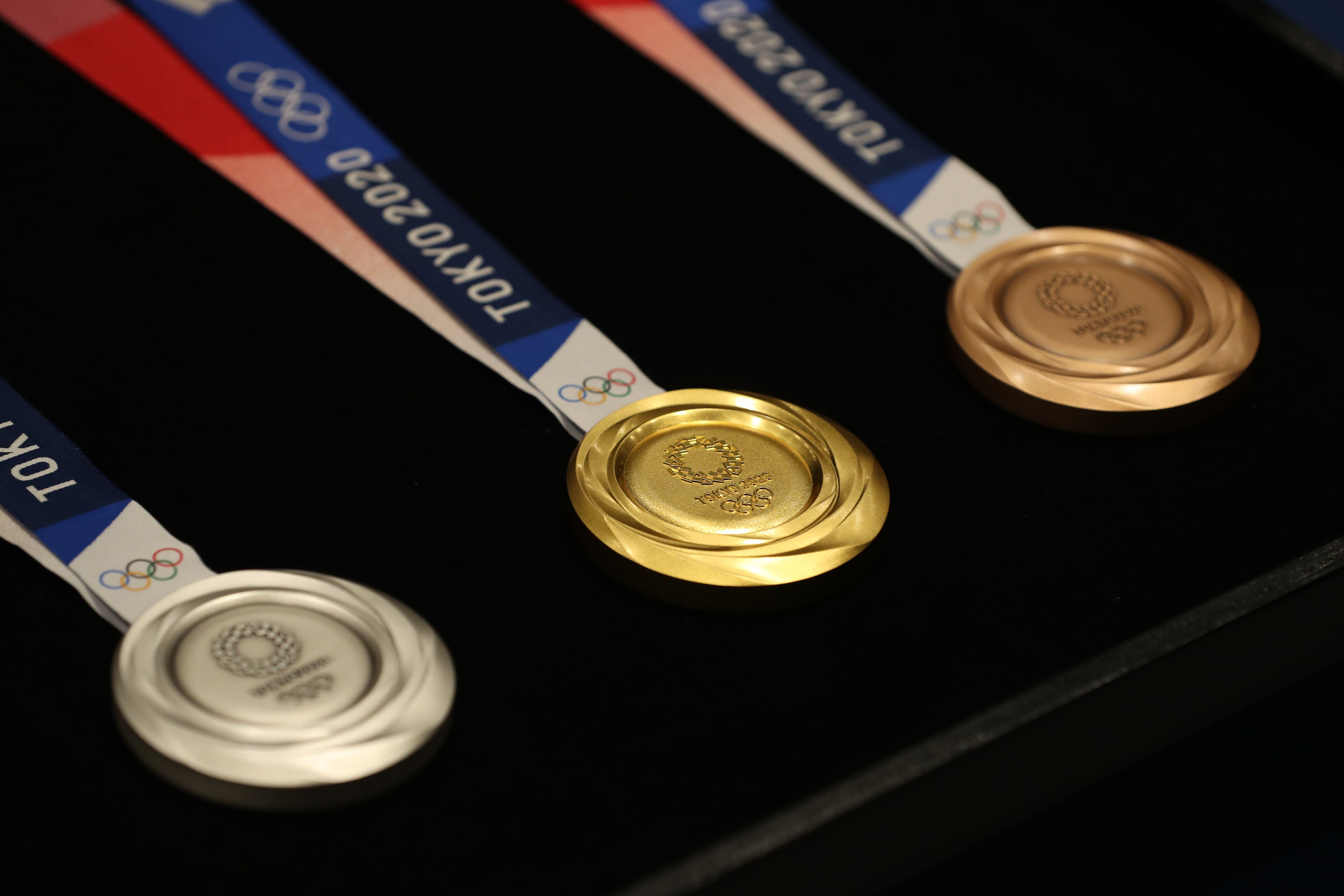DIY medal ceremonies await winners of Tokyo Olympic events
The move will mark a ‘very significant change,’ said Thomas Bach

Your support helps us to tell the story
From reproductive rights to climate change to Big Tech, The Independent is on the ground when the story is developing. Whether it's investigating the financials of Elon Musk's pro-Trump PAC or producing our latest documentary, 'The A Word', which shines a light on the American women fighting for reproductive rights, we know how important it is to parse out the facts from the messaging.
At such a critical moment in US history, we need reporters on the ground. Your donation allows us to keep sending journalists to speak to both sides of the story.
The Independent is trusted by Americans across the entire political spectrum. And unlike many other quality news outlets, we choose not to lock Americans out of our reporting and analysis with paywalls. We believe quality journalism should be available to everyone, paid for by those who can afford it.
Your support makes all the difference.Olympic medal ceremonies will be rather different this year, with medal winners told they will have to put on their own medals to help prevent the spread of Covid-19.
New restrictions mean that athletes who win medals will not be presented with them in the usual way by a member of the IOC. Medal winners will instead have to take them from a tray and hang them around their own necks, to try and curb coronavirus infections.
President of the International Olympic Committee (IOC), Thomas Bach, told international media on Wednesday that the move would mark a “very significant change” to traditional medals ceremonies.
Speaking on a call from Tokyo, he explained the new protocol for medals given at the 339 events saying: “The medals will not be given around the neck.”
He added: “They will be presented to the athlete on a tray and then the athlete will take the medal him or herself.
“It will be made sure that the person who will put the medal on the tray will do so only with disinfected gloves, so that the athlete can be sure that nobody touched them before.”
Social distancing during medal-giving ceremonies at the Olympics, is a completely different approach to the one seen in Euro 2020. Both the winning team, Italy and the runners up, England, had medals placed over their heads by UEFA president Aleksander Ceferin.
Italian goalkeeper Gianluigi Donnarumma, whose save saw Italy win the title, even went as far as to shake hands with Mr Ceferin.
In contrast, Mr Bach confirmed that in Tokyo “there will be no handshakes and there will be no hugs during the ceremony”.
The Games are due to start in just over one week’s time, on Friday 23 July, yet Tokyo is currently in a state of emergency until 22 August, with Covid cases rising rapidly in the city. This has meant that both foreign and domestic spectators will not be allowed to enter either the Olympic stadium.
Relatives of the competing athletes are also not allowed to travel to Japan. However, after the event some athletes will be connected to their families, friends and fans at home via screens. Fans will also be able to send in video clips of up to six seconds in length, which will be displayed next to the field of play.
Meanwhile, crowd noises recorded from each event at previous Olympics, will be played in the arena as one way to support athletes, Mr Bach disclosed.
Broadcaster the BBC is considering dubbing artificial crowd noises over the top of broadcasts in an attempt to help generate atmosphere for television viewers.
Games organisers have also asked each nation to recommend songs their athletes may want to hear played before events on their “immersive sound system.” This has been planned to help create excitement.
Other new regulations will mean that medalists and ceremony officials will have to wear masks and competitors will only be allowed to drink alcohol when alone in their rooms.
It is thought there will also be less sex amoungst competitors, with atheletes advised against “unnecessary forms of physical contact.”
Organisers are expected to hand out 150,000 condoms to the 15,000 Olympic and Paralympic athletes. This year, however, these will be as a parting gift.
Join our commenting forum
Join thought-provoking conversations, follow other Independent readers and see their replies
Comments